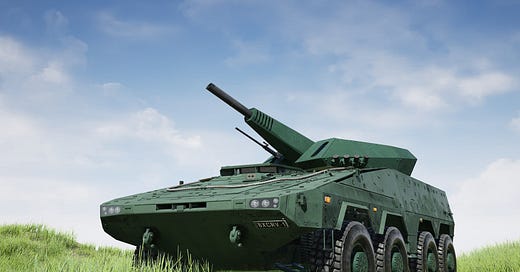DAY 215 OF THE WAR: America Holds Back Arms, Rafah or Hostages, Fighting on Lebanese Border, College Demonstrations, Teva Makes a Comeback
Tel Aviv Diary May 8, 2024
The major story in Israel tonight is the U.S. threat to pause munitions shipments to the country. Conflicting rumors circulated over the past few days, but the news was confirmed today. In a Senate hearing, U.S. Secretary of Defense Lloyd Austin said:
We’ve been very clear from the beginning that Israel should not launch a major attack into Rafah without accounting for and protecting the civilians in that battle space. As we have assessed the situation, we have paused one shipment of high-payload munitions.
In addition, Austin told the Senate hearing, “We've not made a final determination on how to proceed with that shipment.”
I am not surprised. For the past two months, if not longer, I've been writing here that the U.S. was not entirely opposed to an operation in Rafah; they simply requested that Israel come up with a plan for the civilians. However, it seems producing such a plan was beyond our ability. As far as I understand, all we did was hope some Gazans would return to Khan Younis, and we suggested the rest move to an already packed humanitarian zone. We did not create a new tent city or a new field equipped with essential resources; we just figured the problems would work themselves out.
The Americans repeatedly made clear that they wanted a concrete plan for Gaza’s civilians. Regrettably, the American public statement clearly weakens our standing in the region, and any daylight between us and the U.S. is detrimental to us. However, we only have ourselves to blame.
It's unclear what our next steps will be in Rafah. The war cabinet must decide whether advancing deeper into Rafah is worth further straining relations with the U.S. and facing the additional international condemnation that will follow. Unfortunately, we currently lack the ability to fight with a lighter touch. Now that we have taken control of the Rafah crossing, we must determine how to handle it. Oh, I forgot—that requires a strategy, possibly even a political plan, something this government is incapable of formulating. Furthermore, an immediate decision must be made regarding the hostages.
The differences between our position and Hamas’s regarding the conditions necessary to secure a hostage exchange are not so significant that they cannot be bridged—if we genuinely want to reach a resolution. However, there are reports that Netanyahu is doing everything he can to derail any such effort. The reality is that it has become evident that Israel must choose between rescuing the hostages or eliminating Hamas. At this point, there is no way to do both. Former IDF Chief of Staff Avi Kochavi, who has been notably silent during the war, summed up the situation best by saying that until a few months ago, he believed both goals were achievable. Now, however, we have to choose—and Hamas will continue to exist and will undoubtedly give us an excuse to intervene in Gaza again in the future.
Hamas is evil incarnate and will remain so, but we’ve had five months to eliminate them, and we failed. It’s time to acknowledge that and focus on rebuilding the Army and the government to face the challenges ahead while rescuing as many of those who were abandoned to Hamas on October 7th—while they’re still alive.
Meanwhile, Hamas fired several rockets at the area of Kerem Shalom — where, at President Biden's request—we reopened the crossing to allow more goods into Gaza.
The IDF had a significant success today when according to the Army Spokesman:
In a joint operation by the IDF and Shin Bet, an aircraft of the Air Force, with intelligence guidance from Shin Bet and the Navy, eliminated the terrorist Ahmad Ali, the Naval Commander of Hamas in Gaza City. Ahmad Ali had promoted offensive operations towards Israeli territory and additional attacks against IDF forces operating in the Gaza Strip during the war. In recent weeks, he had been working to advance attacks against IDF forces operating in the corridor in the central Gaza Strip. As part of his role, Ali has been involved in managing projects for Hamas's naval force in the Strip in recent years.
IN THE NORTH
This was another day of significant combat in the North. There were seven separate rocket, missile, and drone attacks covering almost all the communities along the border. Israel responded with a series of air attacks on Southern Lebanon.
SOME MORE GOOD READS
A few weeks ago, one of our readers recommended an article by Armin Rosen, titled: The Israel -Gaza War has changed everything: The Norms of war are being rewritten in real-time This piece is worth reading.
Our reader, who is a former Senior U.S. official with long experience in Israel, wrote the following comment in response to Rosen’s essay:
Thought provoking and well written and reasoned piece but strikes me it misses the center of gravity of the war – Hamas as the governing entity in Gaza. It actually misses the political center of gravity altogether -- if war is an extension of politics by other means, this one takes it to an extreme. Israel since that fateful decision, urged by the U.S., to allow an election in Gaza rather than allowing the PA to govern by diktat and arming them to do so, has been fighting a war of containment against the terrorist statelet which it thought it had nailed. The international community too went along as it agreed with Israel that the three year cycles of destruction and rebuilding of Gaza with the occasional rocket barrage came with lower cost than pushing out Hamas from its governing role and imposing a less hostile ruler on the place.
Keep reading with a 7-day free trial
Subscribe to Tel Aviv Diary to keep reading this post and get 7 days of free access to the full post archives.



